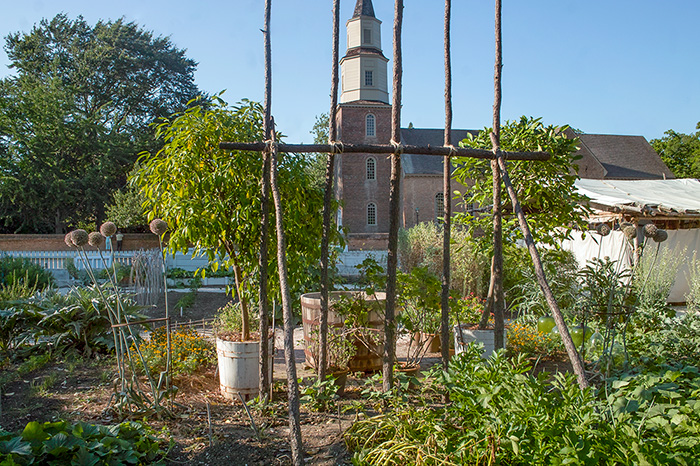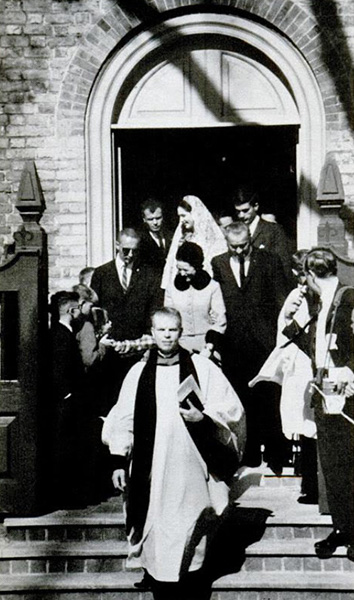
Bruton Parish Church, Williamsburg, Virginia — © Brian Rose
Although I tend to keep politics in the background on this blog, there are times when the background and the foreground collapse into one another and it becomes impossible to separate them. So, I’d like to address the question of the appropriateness of the cast of Hamilton confronting the Vice President elect — who was attending the show — with a statement expressing their concerns about the incoming Trump administration.
Let me share a story from 1967 when I was 13 years old.
President Lyndon Johnson was in Williamsburg, Virginia to address a group of Washington journalists of the Gridiron Club. It was a roast much like the White House Correspondents Dinner, and there were the usual rhetorical jabs directed at the President amid the clubby conviviality between the press and the powers-at-be. I performed at the event as a member of the Colonial Williamsburg Fife and Drum Corps, and I remember vividly how the jokey bonhomie that evening clashed with the reality outside of constant protests against a never-ending war, and Walter Cronkite intoning the latest daily casualty figures on the evening news.
The next morning Johnson attended the Bruton Parish Church, an Episcopalian church presided over by the Reverend Cotesworth Pinkney Lewis, an eloquent, sometimes melodramatic, speaker
 originally from Birmingham, Alabama. I was there with my parents as Lewis mounted the pulpit high above the congregation and directed his sermon at the President of the United States sitting just below. His remarks were respectful in tone, but the message was blunt: “there is a rather general consensus that what we are doing in Vietnam is wrong.” Lewis asked why the war continued to drag on and why there did not seem to be a concerted effort to end it.
originally from Birmingham, Alabama. I was there with my parents as Lewis mounted the pulpit high above the congregation and directed his sermon at the President of the United States sitting just below. His remarks were respectful in tone, but the message was blunt: “there is a rather general consensus that what we are doing in Vietnam is wrong.” Lewis asked why the war continued to drag on and why there did not seem to be a concerted effort to end it.
Johnson, of course, was a captive audience to Lewis’s criticism, ambushed, some said in a house of worship, and Reverend Lewis came under fierce criticism in the national media. The governor of Virginia and the local vestry felt the need to apologize for his breech of protocol. But as far as I know, Lewis never apologized. A year later Johnson announced that he would not run for a second term. James Jones, President Johnson’s chief of staff wrote years later in the Times: “Mr. Johnson had begun to doubt our ability to prosecute the war to any clear-cut victory.” Precisely the criticism made by Reverend Lewis at Bruton Parish.
As a young teenager I considered Lewis something of a pompous ass, in love with hearing himself speak from on high, delivering well-tuned platitudes that soothed the earnest complacency of those filling the pews below. But Lewis broke from his habitual cautiousness that day, his conscience aroused, he seized what he knew was a once in a lifetime moment, and challenged the President of the United States on the prosecution of the war in Vietnam. Lewis’s church was not a safe space that day.
So, when I see the cast of Hamilton stand up and respectfully challenge Mike Pence in the sanctuary of a Broadway theater, I think back to that day in Virginia in 1967. Sometimes it is necessary to disturb the normally observed conventions, to break the fourth wall when the opportunity presents itself, and confront those whose words and actions promote intolerance and threaten our principles and our rights. May there be no safe spaces over the next four years for Mike Pence or Donald Trump.
Reverend Lewis closed his 1967 sermon to Lyndon Johnson with these words:
“The years ahead will be painful. Customs which seem an essential part of life may have to be given up. Opinions we have held tenaciously may be proven false. Physical and emotional landmarks may be swept aside. We may be compelled to think new thoughts and walk in new paths. Emerging young men and women who will gradually take over must have more understanding than we have had. Necessity will compel them to rise to greater heights than we have known. The future looks terrible; but with guidance from God (as in every strategic juncture of history) He will infuse the essential factor into the equation – something we could never suspect as a possibility – to make the future glorious.”